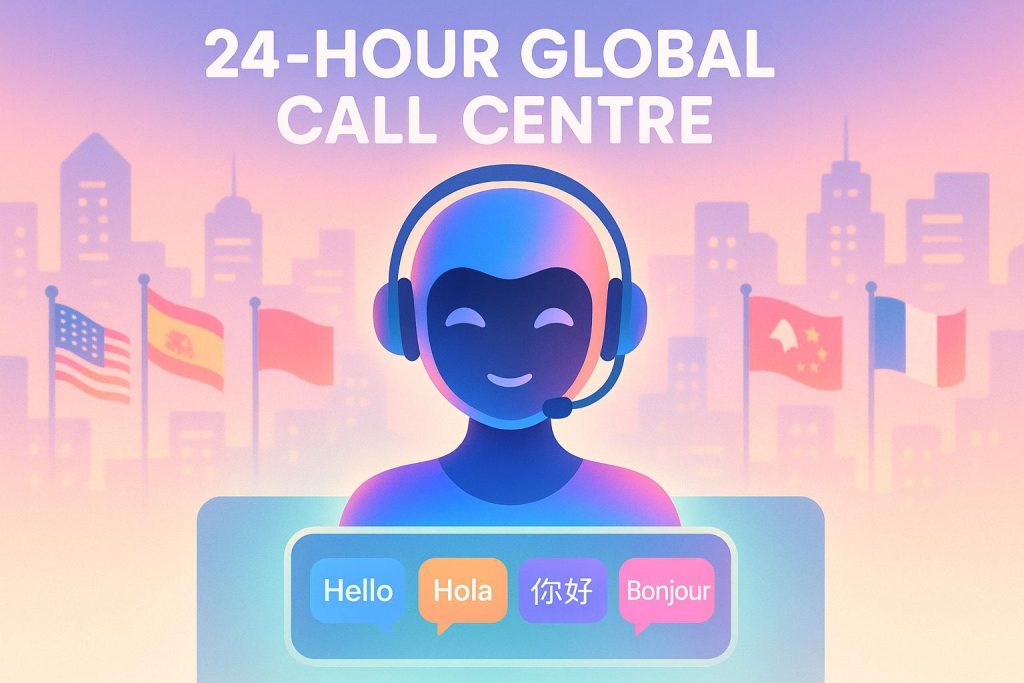Listen to the article
AI voice agents are rapidly transforming customer interactions by providing natural, multilingual, and around-the-clock support, promising substantial operational savings and enhanced customer satisfaction across industries.
AI voice agents are swiftly becoming a transformative force in call centre automation, redefining how businesses manage customer interactions. These AI-powered systems simulate human-like conversations with impressive naturalness, maintaining tone, pacing, and understanding interruptions intuitively. Beyond simple question answering, they can perform a range of practical actions such as managing orders, booking appointments, and pre-qualifying sales leads, making them indispensable tools for modern customer service operations.
At their core, AI voice agents leverage a suite of advanced technologies including Automatic Speech Recognition, Natural Language Processing, and Large Language Models to grasp not only spoken words but the context and intent behind them. This allows for dialogues that feel genuinely interactive. Various terms like ‘voice AI agents’ or ‘AI phone agents’ are used interchangeably to describe them. The market for these solutions is booming, predicted to escalate from around $2.4 billion in 2024 to a staggering $47.5 billion by 2034, highlighting substantial confidence in their value proposition.
A major advantage stems from their ability to operate 24/7, ensuring businesses never miss a customer opportunity — a crucial benefit given many organisations lose 20-40% of incoming calls when human agents are unavailable. Additionally, AI voice agents handle high call volumes simultaneously without compromising quality or response speed, eliminating frustrating hold times and boosting customer satisfaction. These agents also automate repetitive tasks such as answering FAQs, managing orders, providing product information, and running outbound campaigns, freeing human agents to handle more complex queries.
Multilingual capabilities further enhance their appeal, with some voice AI systems supporting hundreds of languages and dialects far beyond human capability, enabling companies to better serve diverse customer bases without expanding their human workforce. This technology has demonstrated improvements in key call-centre metrics, including faster average response times, reduced call abandonment rates, and higher customer satisfaction scores. Financially, the cost difference is stark: AI voice bots can handle calls for about 40 cents each, compared to $7 to $12 per human-handled call, offering significant operational cost reductions for businesses with large call volumes.
Real-world applications are expansive. AI voice agents excel in customer support, emergency hotlines, appointment scheduling, order and account management, lead qualification, outbound notifications, survey administration, and even debt collection. These functionalities cut across many sectors such as retail, finance, healthcare, insurance, government, education, and travel, underscoring their versatility.
When selecting an AI voice agent, businesses should prioritise features like low-latency responses to keep conversations natural, seamless integration with CRM and other backend systems, scalability to handle spikes in call volume, robust analytics for performance monitoring, and stringent security measures—especially crucial for regulated industries.
In contrast to AI chatbots, voice agents are particularly suited to voice-dominant communication needs, such as industries reliant on phone interactions, while chatbots serve text-based digital channels well. Many forward-thinking businesses now deploy both, offering customers multiple avenues of automated support.
Additional insights from leading companies and analysts reinforce these advantages. Salesforce highlights how voice AI’s use of machine learning and conversational AI personalises interactions by leveraging customer history, reducing wait times and boosting resolution speed. Deepgram emphasises that AI voice agents reduce human error, improve consistency, and alleviate agent burnout by handling routine inquiries while maintaining 24/7 availability. Meanwhile, EnableX reports that integrating AI voice agents across popular platforms like WhatsApp allows customers to engage naturally in apps they already use, enhancing convenience and loyalty.
CloudTalk details how AI voice agents accelerate resolutions by providing instant access to customer and product data, which also elevates human agent productivity by offloading routine tasks. Robylon notes the cross-industry impact of voice AI, from healthcare to financial services, where these agents not only handle high volumes of calls but provide instant answers and escalate complex issues effectively. DataGras reinforces the theme of cost savings and operational efficiency, observing how AI voice agents manage thousands of calls daily without fatigue, ensuring consistent service quality and 24/7 support.
In summary, AI voice agents are revolutionising customer service by combining scalability, cost-efficiency, and high-quality personalised interactions. For organisations yet to deploy this technology, now represents a prime opportunity to harness its capabilities for improved customer experience and operational savings.
📌 Reference Map:
- Paragraph 1 – [1], [4]
- Paragraph 2 – [1], [4]
- Paragraph 3 – [1], [2], [3]
- Paragraph 4 – [1], [4], [7]
- Paragraph 5 – [1], [5], [6]
- Paragraph 6 – [1]
- Paragraph 7 – [2], [3]
- Paragraph 8 – [4], [5], [6], [7]
Source: Fuse Wire Services


